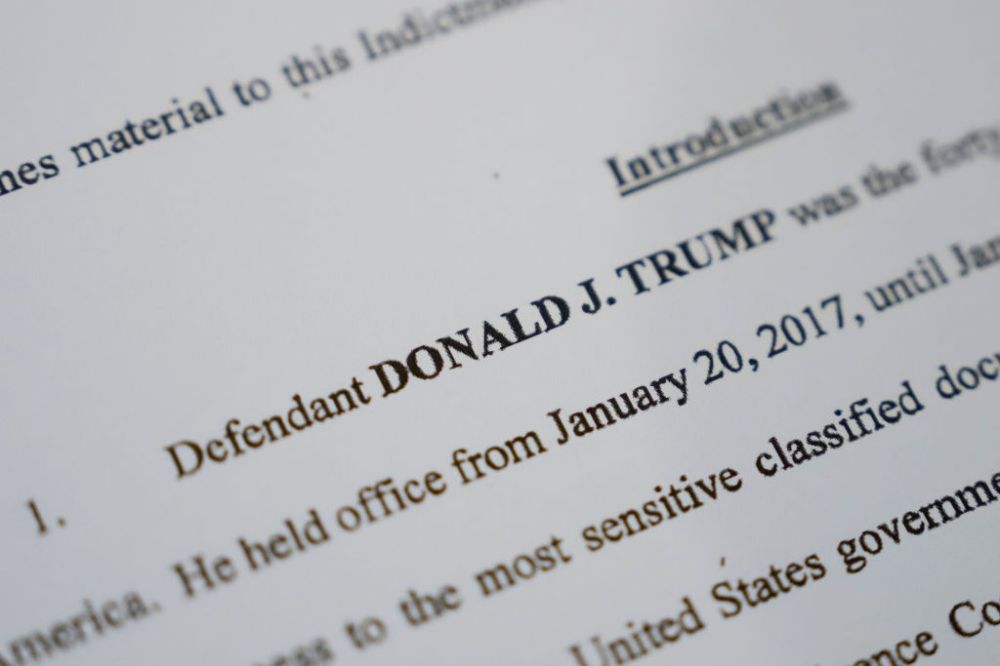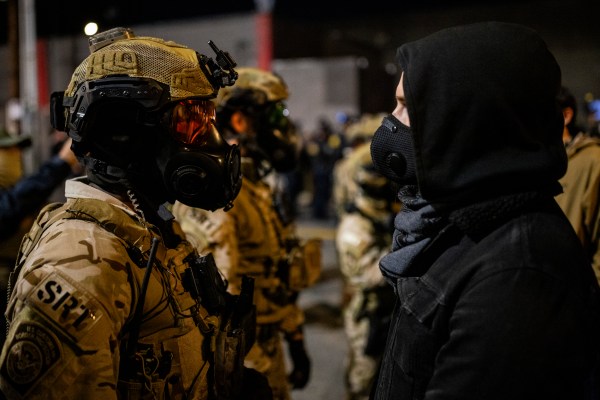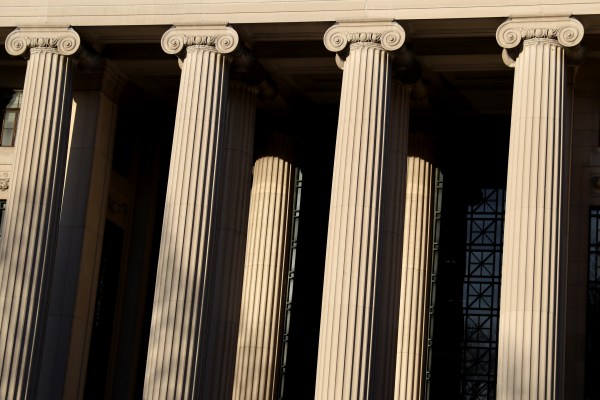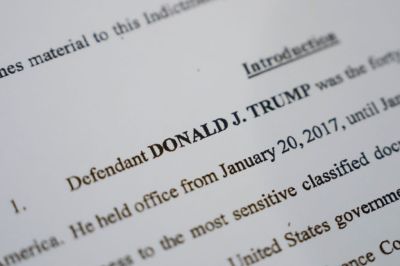Welcome to a special edition of The Collision. While it wasn’t the indictment we thought was coming down this week, the superseding indictment that came out of Florida late Thursday afternoon is worth a brief walkthrough to see what we learned.
Remember: Donald Trump had previously been charged with 31 counts of unlawfully retaining national security information and six counts of obstruction-related charges. A superseding indictment just means that this week’s indictment replaces the previous one, usually by adding new charges or new defendants. In this case, it’s both.
Question Time
Mike—the non-lawyer around here—had some questions about what this all means on the legal side, and Sarah happily obliged.
What was added? Carlos De Oliveira, an employee at Mar-a-Lago, was added as a defendant on obstruction charges. Two new charges were added against Trump as well—an additional charge for willfully retaining national security information related to a classified document about Iran, and another obstruction-related charge alleging Trump attempted to have staff delete security footage in June 2022 after receiving the initial subpoena for the footage.
Is this indictment “more serious” now? Not really. Any time you’re facing 40 charges instead of 37, the indictment is “more serious” in the sense that you’re facing additional legal jeopardy. But these additional charges won’t fundamentally alter Trump’s defense, and they aren’t going to change the prosecution’s strategy either. But they do mean that the special counsel is continuing to gather evidence and witnesses even after the initial indictment. And that Trump continues to be his own worst enemy—more on that below.
Will this delay the trial? Unlikely. Because one of the charges is related to classified material, it will add another layer to that pretrial cake of figuring out what defense attorneys are going to be able to review and how, but there’s still plenty of time. What could delay the trial are court filings like we saw Thursday from the government: Trump is requesting that “he be permitted to discuss classified information with his counsel outside SCIFs,” which are secure rooms designated to review classified material. If the government is characterizing his request accurately, it is a bizarre (and hilarious to me) request to mishandle classified information from someone who is being accused of mishandling classified information. Regardless, that could delay the trial because it takes time for a judge to play Whac-a-Mole with all this stuff.
Why didn’t they charge this stuff in the initial June indictment? Great question. And I can only speculate, but I’ve got a good hunch.
First, the additional charge related to that Iran document is Trump’s biggest problem in a nutshell. This is the document that Trump appeared to be discussing in a since-released audio recording with Mark Meadows’ biographer. Trump can be heard saying “look” and “this is secret information” and “this was done by the military and given to me.” In discussing whether it could be included in the book, he says they’d have to “declassify it—see, as president I could have declassified it, but now I can’t.” After he was indicted, Trump sat down for an interview with Fox News’ Bret Baier—one that I described as every defense attorney’s recurring nightmare—and claimed that he was not referring to any government documents, but instead to “newspaper stories, magazine stories and articles.”
Fork around and find out, as they kids say.
The DOJ recovered that document before the last indictment but didn’t include it in the initial charges. Why? Probably because it was sensitive enough that whichever government agency owned the document didn’t think the juice was worth the squeeze. There were plenty of other, less sensitive documents to charge him with retaining, and they didn’t need to risk this document being released. But that interview clearly angered all the right people. My guess is that the authorizing agency relented and said, “Fine. Use it. If the dude is going to lie so brazenly about the damn thing, we don’t have any choice but to call it out.”
And that’s my guess as to how Trump talked himself into his 32nd charge for willfully retaining national defense information.
Second, we’ve got the additional obstruction charges. Just like the Hulk doesn’t like to get angry, the FBI doesn’t like being lied to. But none of these acts—the attempt to delete the security footage or the interviews in which De Oliveira allegedly lied—happened since the last indictment. So why did they wait? I think it’s a good guess that the special counsel has a new cooperating witness. We knew prosecutors have continued to interview Mar-a-Lago employees since the last indictment, and now we know what they got.
If there is anything more serious about these new charges, it isn’t in the charges themselves. It’s the fact that this means the prosecution has additional witnesses and that they’re not twiddling their thumbs until trial starts. That’s never good news for the defense.
What About the Politics?
No surprise: Trump’s Republican rivals don’t seem to have changed their quiet tune on the former president’s legal troubles for a few measly extra charges to an already existing indictment. From most of the GOP field, the message remains that the Biden administration has a politicized, two-tiered justice system and that when they’re elected president, they’ll clean up the mess.
The consensus second-place candidate, Florida Gov. Ron DeSantis, demonstrated this cautious approach on Thursday, telling CBS News’ Ed O’Keefe that the political judgment on Trump with these current and (likely forthcoming) indictments remains in the hands of voters. That reflects a pretty firmly held view within the Florida Republican’s camp that GOP voters simply distrust the DOJ’s prosecution no matter what. There’s no political upside, in GOP candidates’ view, to running against Trump on any of the substance of the classified-documents case, the Manhattan hush-money case, or the possible charges related to the efforts to overturn the 2020 election. (Former New Jersey Gov. Chris Christie is the notable exception here.)
Where things could get interesting is if and when District Attorney Fani Willis of Fulton County, Georgia, brings charges against Trump for solicitation to commit election fraud and conspiracy to commit election fraud. The grand jury in Atlanta could indict Trump next month, and the evidence already available to the public includes clear and unambiguous audio of Trump demanding Georgia officials change votes to alter the outcome of the 2020 presidential election there.
Someone familiar with internal discussions in the DeSantis campaign tells The Dispatch that because it’s less clear right now how the charges from Willis’ prosecution will land, it’s a little more uncertain what the campaign’s message could be. But if recent past is prologue, it’s doubtful rivals like DeSantis will still see much to gain politically by going after Trump following an indictment from a Democratic DA.








Please note that we at The Dispatch hold ourselves, our work, and our commenters to a higher standard than other places on the internet. We welcome comments that foster genuine debate or discussion—including comments critical of us or our work—but responses that include ad hominem attacks on fellow Dispatch members or are intended to stoke fear and anger may be moderated.
With your membership, you only have the ability to comment on The Morning Dispatch articles. Consider upgrading to join the conversation everywhere.